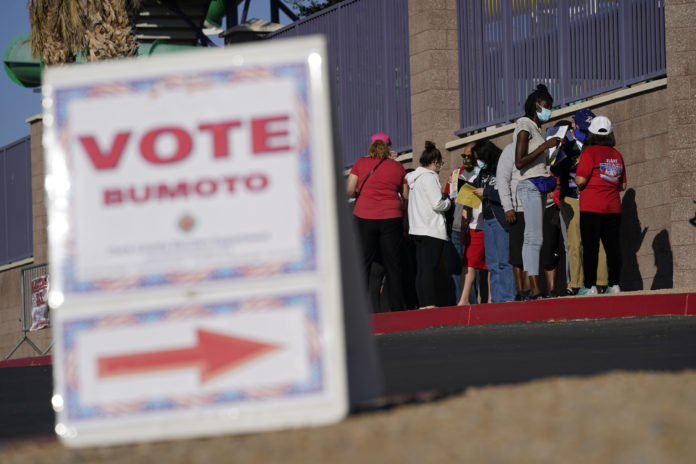
Reps. Greg Stanton and Ruben Gallego joined more than 190 of his House colleagues to introduce H.R. 4, the John Lewis Voting Rights Advancement Act. The Act would restore the full protections of the Voting Rights Act of 1965.
In 2013, the Supreme Court gutted the Voting Rights Act with the Shelby County v. Holder decision and even further weakened voting rights protections in July with the Brnovich v. DNC decision. Since that, there has been an increase in the number of restrictive voting bills that suppress turnout among minorities, Tribal communities, young adults, and the elderly Stanton said in a press release.
Stanton commented, “In the face of a relentless partisan effort to restrict access to the ballot box, Congress must do everything we can to protect the fundamental right of every American to make their voice heard. I’m proud to join my colleagues in introducing the John Lewis Voting Rights Advancement Act to preserve the promises of our democracy by again giving teeth to the Voting Rights Act.”
Rep. Ruben Gallego and Rep. Mondaire Jones introduced the Inclusive Elections Act that is included in the bill.
Gallego issued a press release, stating “I am incredibly proud that my and Rep. Mondaire Jones’ Inclusive Elections Act is included in H.R. 4, the John Lewis Voting Rights Advancement Act. Rep. Jones and I introduced the Inclusive Elections Act after the Supreme Court upheld two Arizona voter suppression laws in Brnovich vs. DNC. The weakening of the Voting Rights Act over the last two decades has undermined our democracy and the right to vote. Our bill – and now H.R. 4 – will restore the promise of the Voting Rights Act by ensuring that Black and brown voters cannot be targeted by racist voter suppression laws. With voting rights under assault across the country, there is no time to waste when it comes to protecting our democracy. Congress must immediately pass H.R. 4 to defend the voting rights of all Americans.”
In Shelby County v. Holder decision, the Supreme Court struck down Section 4, arguing that voter discrimination was an issue of the past and that the formula used to determine which states and localities were subject to preclearance was outdated. The John Lewis Voting Rights Advancement Act will establish an updated formula for determining which states and localities must obtain federal pre-clearance before making changes to their voting laws. It also establishes a targeted process for reviewing voting changes based on measures that have historically been used to discriminate against voters.
H.R. 4 also accounts for the Court’s recent decision in the July Brnovich v. DNC by creating specific standards for courts to apply when ruling on cases brought under Section 2 of the Voting Rights Act.
The House is set to consider H.R. 4 next week.













